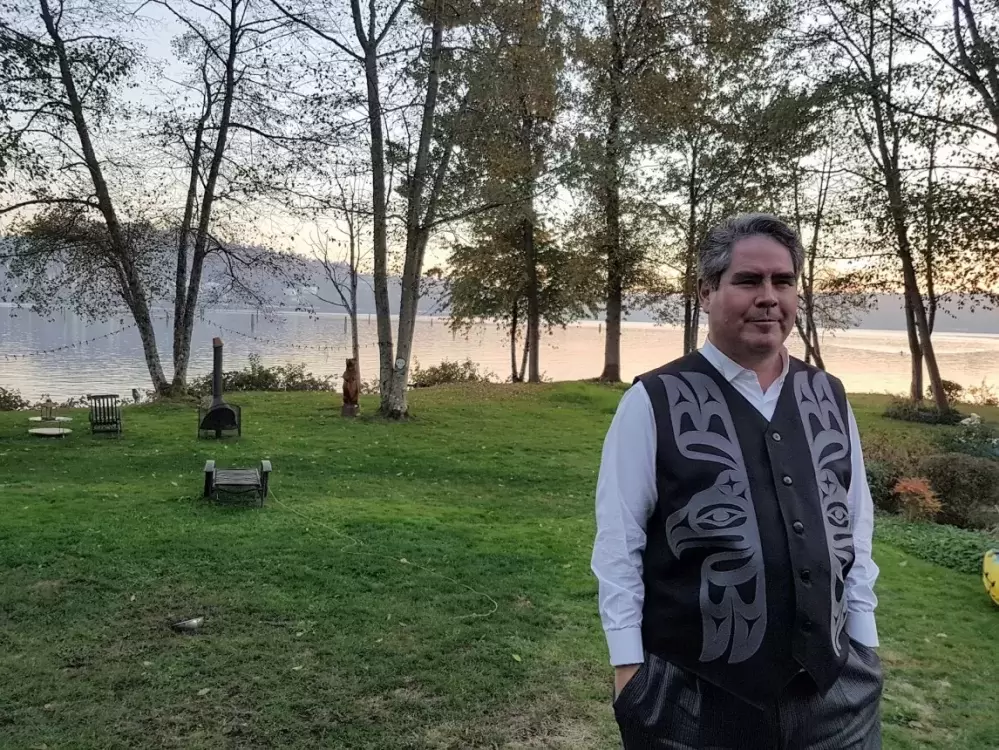The COVID-19 pandemic is causing widespread disruptions to how First Nations can access the justice system, and court restrictions are being felt most strongly by those in remote communities.
After the World Health Organization declared the respiratory disease a pandemic in March, courthouses across British Columbia were closed to in-person hearings. Some urgent matters were still heard by video conferencing and telephone, as the judiciary adjusted to how it would serve the public while limiting contact between people to mitigate the spread of the coronavirus.
By the early summer many provincial courthouses reopened with limitations on the number of people who could attend proceedings, while civil jury trials were suspended until October 2021, with any proceedings held before this date to be heard by judge alone. This allows courts to limit coronavirus exposure and “minimize the impacts of delays,” according to the BC Attorney General.
But now approximately two thirds of those in provincial jails are awaiting a decision on their charges, said Doug White, chair of the B.C. First Nations Justice Council.
“It’s just people waiting for trial, it’s not people that have been found guilty,” he said. “It’s a grave situation. The pandemic has caused real challenges in terms of the normal flow of information and communication between accused and prosecutors.”
The provincial court circuit that regularly comes to Uclulet and Tofino to serve the region’s west coast communities has also been disrupted, causing major delays for those in remote locations like Ahousaht.
“There definitely has been postponement,” said Ahousaht Chief Councillor Greg Louie of those awaiting court appearances.
“There’s always been a real concern on our part for the lack of a presence of a justice system - a properly functioning justice system - in remote communities,” added White, noting that this pre-existing problem has worsened with the pandemic. “When we think about women’s safety and prevalence of sexual assault, sexual offences, when something happens and you have to call for help and you’re in a remote context, in some parts of the province…it could be days before police arrive.”
The court circuit has since returned to the west coast locations, but mainly by remotely connecting with people through the use of videoconferencing technology. The court is in Ucluelet for two days this month, and scheduled for another two days in Tofino in November.
Limited internet service has challenged the ability of many First Nations to remotely connect to courts, putting those in faraway settlements at a disadvantage in their access to justice. But fortunately for Ahousaht the community erected a new TELUS tower in late 2019, enabling widespread cellular service and high-speed internet.
“It’s been a real bonus during this COVID,” said Louie. “We’re probably doing videoconferencing sometimes six hours a day.”
In recent weeks the First Nation received an offer from a Crown counsellor to allow for more virtual appearances.
“She is going to be making an affidavit to the judge to have this happen, possibly in November,” said Louie.
As many expect the pandemic to continue through 2021, an expanded reliance on remote connectivity appears to be a means to increasing access to the courts for those who live far from urban centres, says Doug White, chair of the B.C. First Nations Justice Council. Efforts to open Indigenous justice centres across B.C. have been curtailed by COVID-19 restrictions, leading the council to work on a proposal for a virtual justice centre to assist First Nations.
“Working with various technology companies and getting funding for government, the plan is to get a number of lawyers in place to be able to be available to Indigenous people virtually,” he said.
To help clear up a backlog in cases, six new provincial court justices were appointed in July, including three judges who agreed to return from retirement. Along with the increased use of technology, this has helped the courts to catch up to the point where “there are no great delays,” said Alexander Wolf, the provincial court judge for Port Alberni and west coast communities. But he has concerns over what is being lost by the absence of in-person appearances, particularly as the judge considers sentencing alternatives to jail time.
“By dealing with an individual outside of the community context, I’m losing all of the community context,” he said, noting the importance of others who can offer better avenues to help rehabilitation. “The reason that we have courts in communities is because each community has an individual need, an individual personality. We’re attempting to respect that.”
“You have to balance the circumstances of the offence with the circumstances of the offender,” added Wolf.
The judge also fears that remote connectivity could become a mainstay for those in faraway locations, as the provincial government looks for ways to save justice system costs.
“I would sat that those communities have less access to justice as a result of the circuit pulling out,” said Wolf. “In this time of fiscal restraint because of COVID, we can’t lose access to justice, because we’ve seen that take place all over.”
Another justice issue is access to parole officers, regular visits to Ahousaht that stopped in March.
“Before COVID they were coming to the community every two months,” said Louie. “Ahousaht is requesting to possibly come a bit more frequently.”
Melinda Swan, Ahousaht’s deputy chief councillor, added that parole officers have now resumed visits to Ucluelet and Tofino.
“They’re preparing safety plans for coming to Ahousaht, so they will submit that to leadership,” she said.







